 |
|
|
| View this newsletter online |
 |
Research School for Socio-Economic and
Natural Sciences of the Environment |
| SENSE e-News |
|
|
  |
Newsletter October 2021
06 October 2021 |
|
 |
| • |
“Micropollutants in the water cycle” first course to be developed with SENSE course funding ›› |
| • |
Backpack Indoor Mobile Mapping System developed by Samer Karam (UT-ITC) ›› |
| • |
Call for seed money-proposals Focus Area Migration and Societal Change at Utrecht University fall 2021 (deadline: 25 October 2021) ›› |
| • |
A call for papers for the special issue of the Journal of Integrative Environmental Sciences, titled "Integrative sustainability education: emerging concepts and approaches" (deadline: 15 December 2021) ›› |
| • |
A call for papers for the special issue of the Journal of Integrative Environmental Sciences, titled "Integrative approaches to the environmental and socio-economic SDGs" (deadline: 31 December 2021) ›› |
| • |
A call for papers for the “Water Journal” special issue titled "Water Management for Climate Smart Agriculture" (deadline: 15 March2022) ›› |
| • |
Advanced GIS analysis of the built and natural environment, 11-22 October 2021 ›› |
| • |
A1 SENSE Introductoy Course, 25-29 October 2021 ›› |
| • |
Environmental and Resource Economics – Module: Circular Economy, 15-19 November 2021 ›› |
| • |
Overview of PhD / postdoc courses October - November 2021 ›› |
| • |
Overview of recently announced PhD / postdoc courses ›› |
| • |
Pathways to Sustainability Conference Week 2021 – Making Change Happen, 11-14 October 2021 ›› |
| • |
Annual IHE PhD Symposium 14-15 October 2021 – all SENSE PhD candidates invited ›› |
| • |
Overview of upcoming events October ›› |
| • |
Overview of recently announced events ›› |
| • |
Upcoming PhD graduations ›› |
| • |
Overview job vacancies ›› |
| • |
Other vacancies in the SENSE field ›› |
|
|
|
 |
 |
 |
| Editorial |
 |
|
What is the similarity between an iceberg and a fisherman?
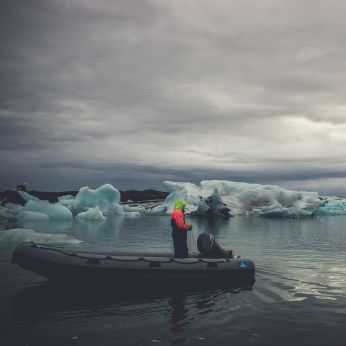 Both are part of the Arctic system that was discussed in a workshop during the International Transdisciplinary Conference. Participants were invited to identify with one of the many elements of the Arctic system and embody their individual role and respond to the changing system. This playful and maybe slightly discomforting exercise illustrates what transdisciplinary science includes: focusing on interactions, open-mindedness for the perspective of others, and getting out of your disciplinary comfort zone. Both are part of the Arctic system that was discussed in a workshop during the International Transdisciplinary Conference. Participants were invited to identify with one of the many elements of the Arctic system and embody their individual role and respond to the changing system. This playful and maybe slightly discomforting exercise illustrates what transdisciplinary science includes: focusing on interactions, open-mindedness for the perspective of others, and getting out of your disciplinary comfort zone.
Transdisciplinary as science is not just science FOR society, but science WITH society. Researchers can engage societal players from the start of the project as equal partners with their own share of unique and useful knowledge. In such a situation, researchers may experience that they may have a lot of theoretical and scientific knowledge about the Arctic, but do not have a clue about the information fisherfolk and other interested parties need to respond to climate change . To have real impact, this local knowledge is indispensable. The combined knowledge of scientists and societal actors may lead to solutions of complex problems that would otherwise not be found.
Transdisciplinary science is being practised in many scientific institutions and it is important to share experiences and methods to further develop this kind of research. During the International Transdisciplinary Conference, participants identified challenges and opportunities for transdisciplinary research of knowledge sharing. One important aspect is the creation of safe space to discuss “awkward” or “silly” questions and experiment with different approaches.
As a WIMEK/SENSE postdoc on transdisciplinarity, Jillian Student is looking for ways to improve the visibility of transdisciplinary research within the institute and make it part of the institutional DNA. At SENSE, we may want to think about how we can contribute to creating the necessary safe spaces and room for experimenting with transdisciplinarity within our SENSE network.
Anyone who is interested in these subjects and has questions or deas that they would like to discuss with Jillian, please feel free to contact her (jillian.student@wur.nl)! |
|
|
 |
| SENSE News |
 |
| “Micropollutants in the water cycle” first course to be developed with SENSE course funding |
The course "Micropollutants in the water cycle" is the first course to be developed with funding of the new SENSE fund for the development of PhD courses.
The new fund was established in 2020 and will run from 2021-2026. Annually there is €20,000 available to support PhD course development, with a maximum of €4,500 per course.
The 5-day course "Micropollutants in the water cycle" offers a comprehensive overview of the threats to water quality posed by micropollutants, and a multidisciplinary approach to solving this environmental problem. |
|
|
| “Backpack Indoor Mobile Mapping System developed by Samer Karam (UT-ITC) |
We have many large public buildings nowadays (like airports, hospitals, train stations). In order to navigate in such buildings, a digital map is needed, similar to Google Maps that became indispensable outdoors. One of our SENSE PhD candidates at the ITC Faculty at the University of Twente, Samer Karam, has developed a SLAM-based backpack mobile mapping system “ITC_Backpack” during his PhD research. The backpack system can access anywhere the operator can walk. It provides a map of the area in the shape of a LIDAR point cloud. Using such a mobile mapping system, mapping a building doesn’t require hours, but minutes. You can read all backpack related articles: https://lnkd.in/gQybrbE5 and see some results: https://lnkd.in/gzmyCPBP
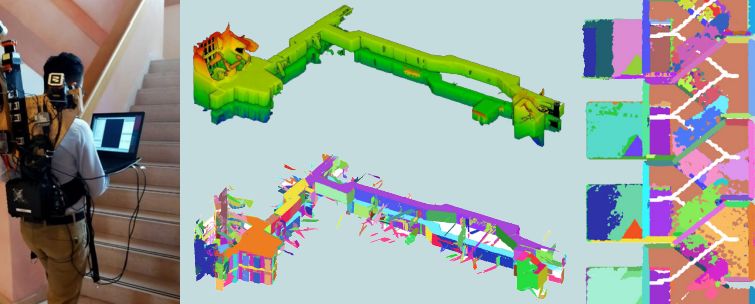
|
|
|
|
| We are currently developing a proper blog functionality for the SENSE website. In case you are interested to have your own research blog on the SENSE website, please contact marjolijn.dannenburg@wur.nl. |
|
|
| Calls |
 |
| Call for seed money-proposals Focus Area Migration and Societal Change at Utrecht University fall 2021 (deadline: 25 October 2021) |
| The Focus Area Migration and Societal Change at Utrecht University is launching a third call for proposals to be awarded seed money funding for new research initiatives. It is the main purpose of such seed money to stimulate and foster excellent research in the field of the focus area, and to establish new and/or strengthen existing interdisciplinary collaborations. |
|
|
| A call for papers for the special issue of the Journal of Integrative Environmental Sciences, titled "Integrative sustainability education: emerging concepts and approaches" (deadline: 15 December 2021) |
Tackling the complex challenges and interlinked elements of sustainability require integrative knowledge and skills to be able to reach across disciplines, actors from all parts of society, scales, challenges etc. This is a so far under-represented topic in the scientific literature on sustainability education and we aim to address it in our special issue “Integrative sustainability education: emerging concepts and approaches” in the Journal of Integrative Environmental Sciences.
We invite interested authors to consider the following dimensions as starting points for defining integration in their articles: sustainability in educational programming, student population, co-curricular activities, institutional level, disciplines/stakeholder engagement, and sustainability issues/challenges.
The special issue focusses on academic and lifelong education. We invite papers on the following research areas:
1) practical or content focused analyses of implementing integrative sustainability education,
2) formal institutional aspects of integrating sustainability education, and
3) the role of university teaching and lifelong learning in integrative sustainability education.
For more information, please check out the call for papers: https://think.taylorandfrancis.com/special_issues/integrative-sustainability-education/ or contact us by email.
We are looking forward to your contributions and the discussion on integrative sustainability education.
Sincerely, Birka Wicke*, Karin Rebel*, John Robinson and Henri Moll
* Copernicus Institute Utrecht University |
|
|
| A call for papers for the special issue of the Journal of Integrative Environmental Sciences, titled "Integrative approaches to the environmental and socio-economic SDGs" (deadline: 31 December 2021) |
The SDGs are particularly relevant for the Journal of Integrative Environmental Sciences (JIES). The vision of the SDGs is to transform the living conditions of all people on the Earth so that we can live within the ‘planetary boundaries’ while enjoying economic prosperity and social wellbeing. The transformative change aimed through the SDGs requires a paradigm shift in thinking to break away from the current development trajectories that are resource intensive, inefficient (hence wasteful), environmentally damaging, growth-driven, socially inequitable and unjust. The SDGs offer the opportunity to approach sustainable development in an integrated, interconnected way.
This special issue is part of a cross-disciplinary collection in support of the European Commission’s Horizon Missions, with contributions from across the Life, Earth and Environmental Sciences. These missions collectively represent important research and policy priorities facing our global society. The collection will be published to be timed with Earth Day 2022 (April 22nd, 2022) as part of a collaborative effort to support real-world research that addresses the SDGs and global policy priorities. |
|
|
| A call for papers for the “Water Journal” special issue titled "Water Management for Climate Smart Agriculture" (deadline: 15 March2022) |
As you know, in agriculture water resources shortages have become an increasingly serious problem, particularly in arid and semi-arid regions due to climate change. Changes in rainfall and temperature patterns threatens the agricultural production and increase the vulnerability of people dependent on agriculture. In addition to that, up to 70% of global water consumptions go to the agriculture sector uses. Thus, improving water management especially for agriculture will support achieving the global goals of food and water security. Therefore, the Climate Smart Agriculture (CSA) approach is required to ensure the transforming and reorienting the agricultural systems to adapt to the effects of climate change and ensure smart use of the limited water available. In this light we find it important to share the latest insights on water management for climate smart agriculture.
We, therefore, would like to invite you to share your latest work on this topic in the form of a research or review paper for the special issue entitled "Water management for Climate Smart Agriculture" as part of the online MDPI Water journal.
Research papers are welcome on topics like: Water scarcity, Water conservation, Rain water harvesting, Water use efficiency, Irrigation (efficiency), Hydroponics, Salinity, Hydrological modelling. Attention to socio-economic, policy and gender related aspects are encouraged also. So, I invite you and your colleagues to submit your articles to this special issue.
Your submitted articles will provide future directions and guidelines for stakeholders like national and international agencies, policy makers, scientists and farmers to assess and solve the regional water and agriculture problems in arid and semi-arid regions.
Please let us know if you need any help. Thank you for your kind consideration.
Prof. Coen Ritsema*, Dr. Michel Riksen* and Dr. Karrar Mahdi* (karrar.mahdi@wur.nl)
*Wageningen University |
|
|
|
 |
 |
|
 |
 |
| Upcoming courses and discussion groups |
 |
| Advanced GIS analysis of the built and natural environment, 11-22 October 2021 |
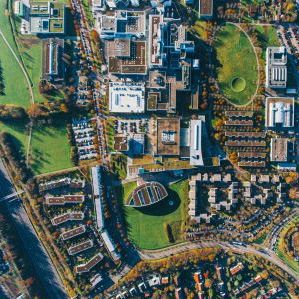 Due to availability of many data source, analysis of the built and natural environment, such as cities, and its surrounding landscapes, GIS analysis has great potential to address issues related to ecosystem services, environmental justice and the Urban climate. Hence this course will focus on a. knowing which date is available and b) acquiring the GIS skills needed for the analysis of the available data, leading to data-article reports submitted to a scientific journal to make the analysis available for a wider scientific audience. Due to availability of many data source, analysis of the built and natural environment, such as cities, and its surrounding landscapes, GIS analysis has great potential to address issues related to ecosystem services, environmental justice and the Urban climate. Hence this course will focus on a. knowing which date is available and b) acquiring the GIS skills needed for the analysis of the available data, leading to data-article reports submitted to a scientific journal to make the analysis available for a wider scientific audience. |
|
|
| A1 SENSE Introductoy Course, 25-29 October 2021 |
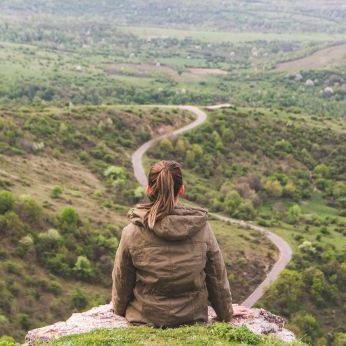 This course brings together PhD candidates that have the ambition to work on environmental issues, and who have just started their journey within SENSE.
During the course, you will discuss the need for interdisciplinary research and start to think about what role you would like to play as a scientist in solving environmental issues. The course will also be part introduction to personal leadership, exploring what is important to you, and hence what broader skills and competencies you will want to develop during your PhD trajectory. And you will meet other PhD candidates with which you will share a lot of the same experiences with.
|
|
|
| Environmental and Resource Economics – Module: Circular Economy, 15-19 November 2021 |
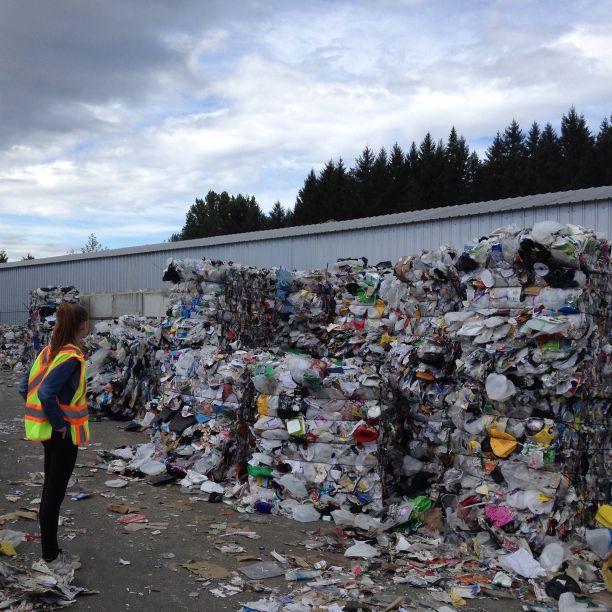 Why is there so much waste? Can or should it be reduced? By how much – and why, in the first place? The module “Circular Economy” picks up these questions. Reduction of waste, reduction of primary resource extraction, and increasing resource use efficiency are high on the political agenda of the EU and its member states. While much of the debate is about enhancing technologies that facilitate reuse, repair and recycling of goods, this course examines the economic rationale of the circular economy.
|
|
|
| Overview of PhD / postdoc courses October - November 2021 |
|
|
|
|
| Overview of recently announced PhD / postdoc courses |
|
In case you are interested in either participating or teaching a course that is currently not in the programme, please do not hesitate and contact us with your suggestions. |
|
|
|
 |
 |
|
 |
 |
| Upcoming Events |
 |
| Pathways to Sustainability Conference Week 2021 – Making Change Happen, 11-14 October 2021 |
| It is abundantly clear that halting the climate crisis before reaching irreversible tipping points is crucial. Alarming messages reach us in an ever-higher frequency, but we can also see change occurring. Speculation abound about ‘social tipping points’, whether it is climate activism, technological development, ecosystem restoration, or changing appreciations in the financial world.The Pathways to Sustainability Conference Week Making Change Happen is filled with PtS-related activities, each tailored to specific aims and audiences organized from different areas of expertise, in which there is room for deepening and knowledge exchange. From Gaming to Circular Economy, from Transformation of Cities to Flood Risk Management, Making Change Happen can be experienced in all our sessions. |
|
|
| Annual IHE PhD Symposium 14-15 October 2021 – all SENSE PhD candidates invited |
Special, 15th edition of PhD Symposium at IHE Delft will provide a unique opportunity for PhD fellows to present their research, receive feedback from a group of experts from IHE Delft and other universities, and network with PhDs working on a broad range of topics. A hybrid format, combination of both in-person and online, would enable to engage interested early-career scholars and young researchers from the Netherlands, and also from outside.
The theme of the 2021 edition is Collaborative water resource management for a water secure world. |
|
|
| Overview of upcoming events October 2021 |
|
|
|
|
| Overview of recently announced events |
|
|
|
|
| Upcoming PhD graduations |
 |
| Overview of PhD graduations upcoming period |
- Fanrong Meng
From plastic mulching to microplastic pollution: an effect assessment of microplastics in the soil-plant system
5 October 2021, Wageningen University, Soil Physics and Land Management
- Richard Marijnissen
Shared-use of Flood Defenses
6 October 2021, Wageningen University, Water Systems and Global Change
- Megan Blatchford
Evaluating the quality of remote sensing-based agricultural water productivity data
7 October 2021, University of Twente, Water Resources
- Yang Liu
Arctic weather and climate: from mechanisms to forecasts
12 October 2021, Wageningen University, Meteorology and Air Quality
- Rieks de Rink
Electron shuttling in haloalkaliphilic sulfide oxidizing bacteria
13 October 2021, Wageningen University, Environmental Technology
- Baslyd Nara
Towards agrarian tenure security of subsistence settler farmers for household food security in Northern Ghana
14 October 2021, University of Twente, Urband and regional and Geo-Information Management
- Thu Hang Duong
Anaerobic conversion of proteins under methanogenic and acidifying conditions
14 October 2021, Wageningen University, Environmental Technology
- Indra Firmansyah
Development of a planning approach for resource recovery and reuse on small islands
15 October 2021, Wageningen University, Environmental Technology
- Julius Wesche
Configural Innovation Systems: Transition Dynamics and Actor Strategies in the German Heat System
15 October 2021, Utrecht University, Innovation Studies
- Lorenzo Tosti
Improving circularity of biomass ash. Theoretical, experimental, and modelling approach to find sustainable solutions for application in cement or soil
15 October 2021, Wageningen University, Soil Chemistry and Chemical Soil Quality
- Els Weinans
Dynamics of complex systems inferred from multivariate timeseries
18 October 2021, Wageningen University, Aquatic Ecology and Water Quality Management
- Joost Buitink
Capturing hydrological variability. Spatio-temporal aspects of the Rhine basin
20 October 2021, Wageningen University, Hydrology and Quantitative Water Management
- Egor Prikaziuk
Radiative transfer models for operational retrieval of plant traits and ecosystem functional properties from multi-source remote sensing data
27 October 2021, University of Twente, Water Resources
- Samer Karam
Developing a SLAM-based Backpack Mobile Mapping System for Indoor Mapping
27 October 2021, University of Twente, Earth Observation Science
|
|
|
|
 |
 |
|
 |
 |
| Job vacancies |
 |
| Overview of vacancies at SENSE partners |
- Postdoc Research remote sensing and crop water productivity, IHE Delft
Apply before: 10 October 2021
- Researcher for the EcoExtreML project, University of Twente
Apply before: 15 October 2021
- PhD position on Hydrological Modelling with Machine Learning, Wageningen University
Apply before: 16 October 2021
- Two Assistant Professors at the Forest and Nature Conservation Policy Group (tenure-track), Wageningen University
Apply before: 16 October 2021
- Lecturer in Hydrology, Wageningen University
Apply before: 26 October 2021
- Researcher/Lecturer Revisiting photogrammetry using deep learning, University of Twente
Apply before: 27 October 2021
- Researcher/Lecturer Deep learning on UAV / on-board and cloud computing for UAV mapping, University of Twente
Apply before: 27 October 2021
- PhD: Energy-efficient electrochemical phosphate recovery (EPR) - optimisation and upscaling, Wageningen University
Apply before: 29 October 2021
- PhD: EPS-based solutions to increase soil structure and resilience to drought, Wageningen University
Apply before: 29 October 2021
- PhD: High recovery and chemical-free desalination using advanced electrodialysis schemes, Wageningen University
Apply before: 29 October 2021
- PhD: Toward a circular sulphur economy, Wageningen University
Apply before: 29 October 2021
- PhD: Enhancing the local water cycle via evaporation for a sustainable water supply, Wageningen University
Apply before: 29 October 2021
- Appointment of Chair in Organizations and Sustainability, Utrecht University
Apply before: 2 November 2021
|
|
|
| Other vacancies in the SENSE field |
|
|
|
|
| More vacancies |
| During the month new vacancies are regularly posted on the SENSE vacancy page. |
|
|
|
 |
 |
|
 |
|
 This course brings together PhD candidates that have the ambition to work on environmental issues, and who have just started their journey within SENSE.
This course brings together PhD candidates that have the ambition to work on environmental issues, and who have just started their journey within SENSE.

 Both are part of the Arctic system that was discussed in a workshop during the International Transdisciplinary Conference. Participants were invited to identify with one of the many elements of the Arctic system and embody their individual role and respond to the changing system. This playful and maybe slightly discomforting exercise illustrates what transdisciplinary science includes: focusing on interactions, open-mindedness for the perspective of others, and getting out of your disciplinary comfort zone.
Both are part of the Arctic system that was discussed in a workshop during the International Transdisciplinary Conference. Participants were invited to identify with one of the many elements of the Arctic system and embody their individual role and respond to the changing system. This playful and maybe slightly discomforting exercise illustrates what transdisciplinary science includes: focusing on interactions, open-mindedness for the perspective of others, and getting out of your disciplinary comfort zone.
 Due to availability of many data source, analysis of the built and natural environment, such as cities, and its surrounding landscapes, GIS analysis has great potential to address issues related to ecosystem services, environmental justice and the Urban climate. Hence this course will focus on a. knowing which date is available and b) acquiring the GIS skills needed for the analysis of the available data, leading to data-article reports submitted to a scientific journal to make the analysis available for a wider scientific audience.
Due to availability of many data source, analysis of the built and natural environment, such as cities, and its surrounding landscapes, GIS analysis has great potential to address issues related to ecosystem services, environmental justice and the Urban climate. Hence this course will focus on a. knowing which date is available and b) acquiring the GIS skills needed for the analysis of the available data, leading to data-article reports submitted to a scientific journal to make the analysis available for a wider scientific audience. Why is there so much waste? Can or should it be reduced? By how much – and why, in the first place? The module “Circular Economy” picks up these questions. Reduction of waste, reduction of primary resource extraction, and increasing resource use efficiency are high on the political agenda of the EU and its member states. While much of the debate is about enhancing technologies that facilitate reuse, repair and recycling of goods, this course examines the economic rationale of the circular economy.
Why is there so much waste? Can or should it be reduced? By how much – and why, in the first place? The module “Circular Economy” picks up these questions. Reduction of waste, reduction of primary resource extraction, and increasing resource use efficiency are high on the political agenda of the EU and its member states. While much of the debate is about enhancing technologies that facilitate reuse, repair and recycling of goods, this course examines the economic rationale of the circular economy.